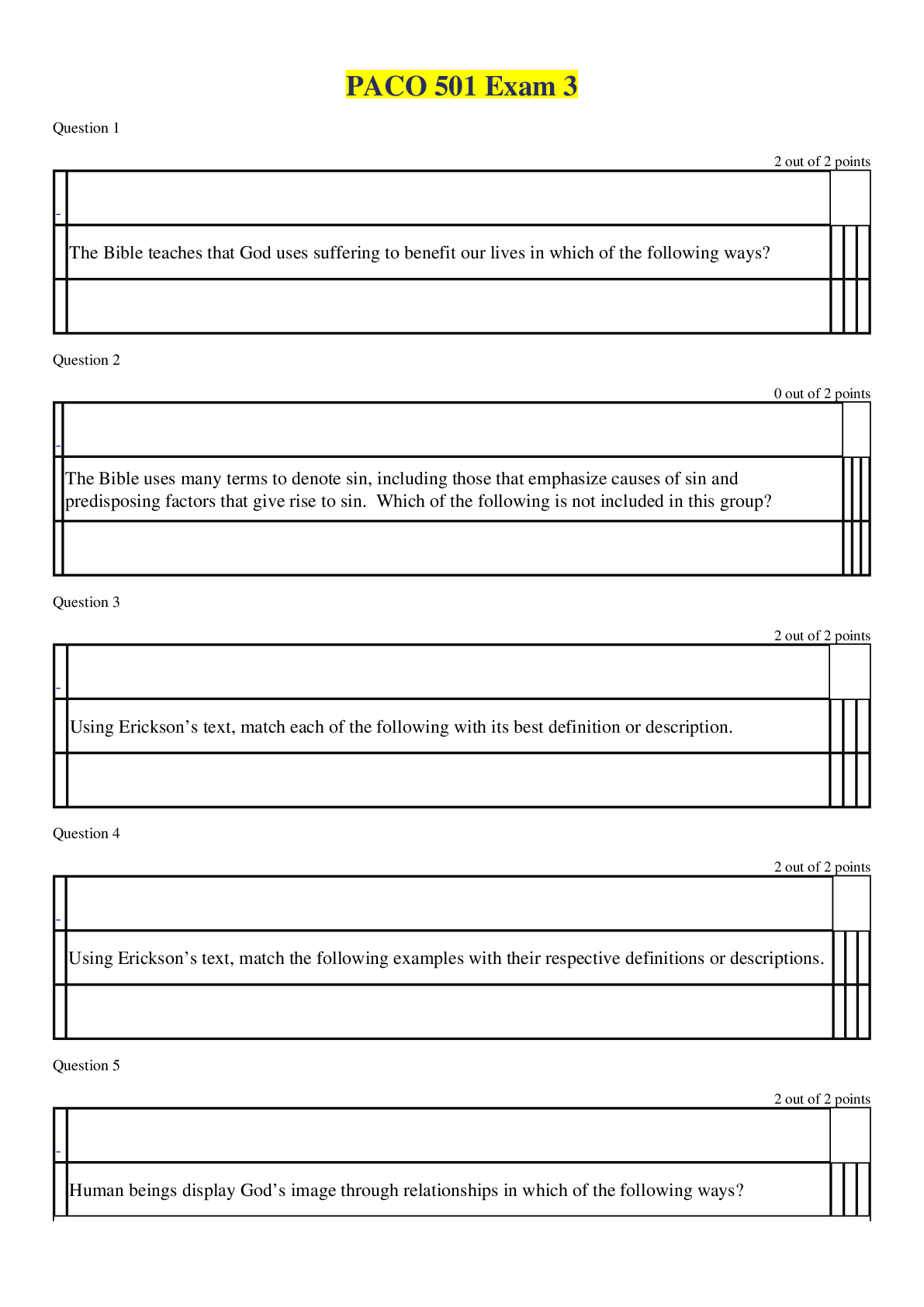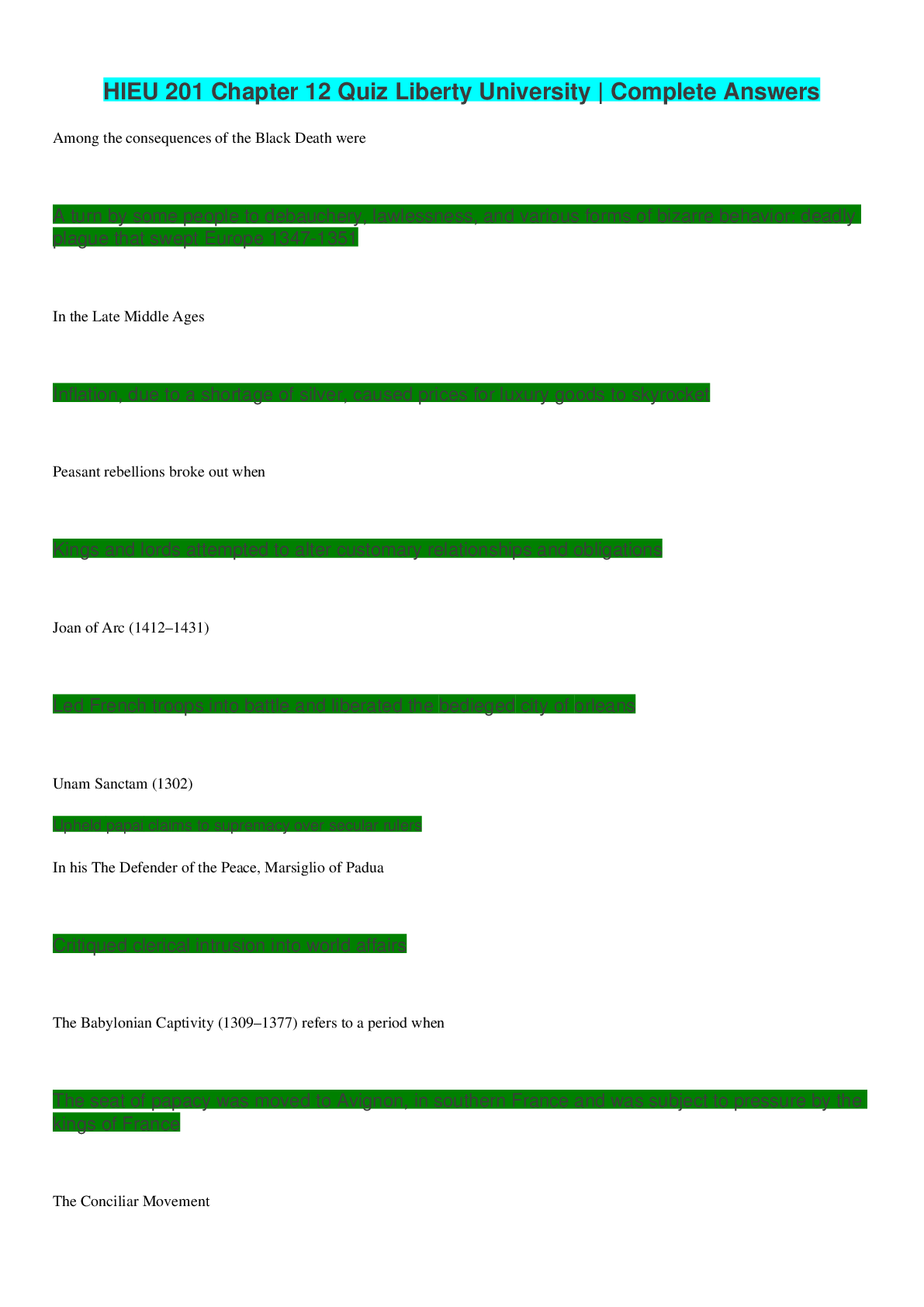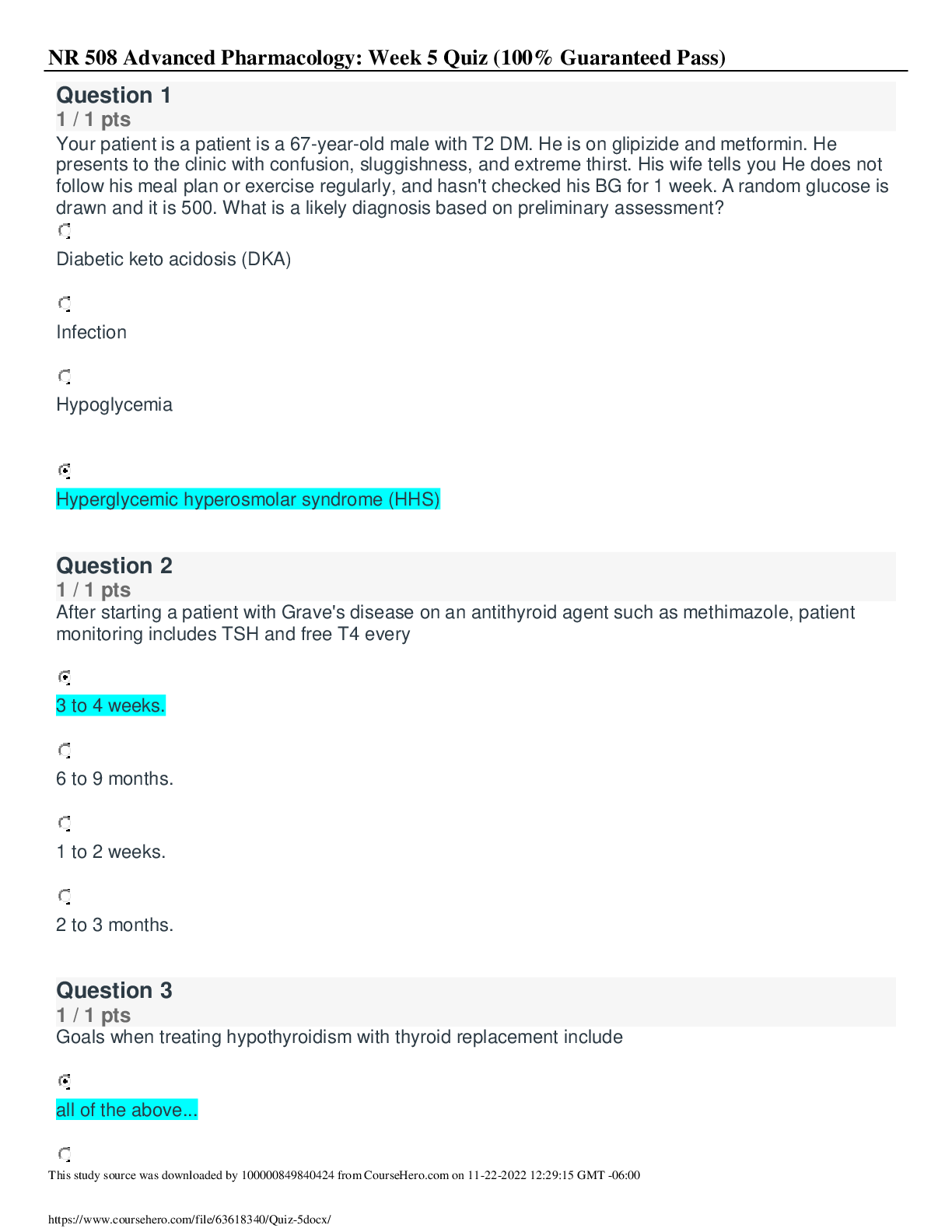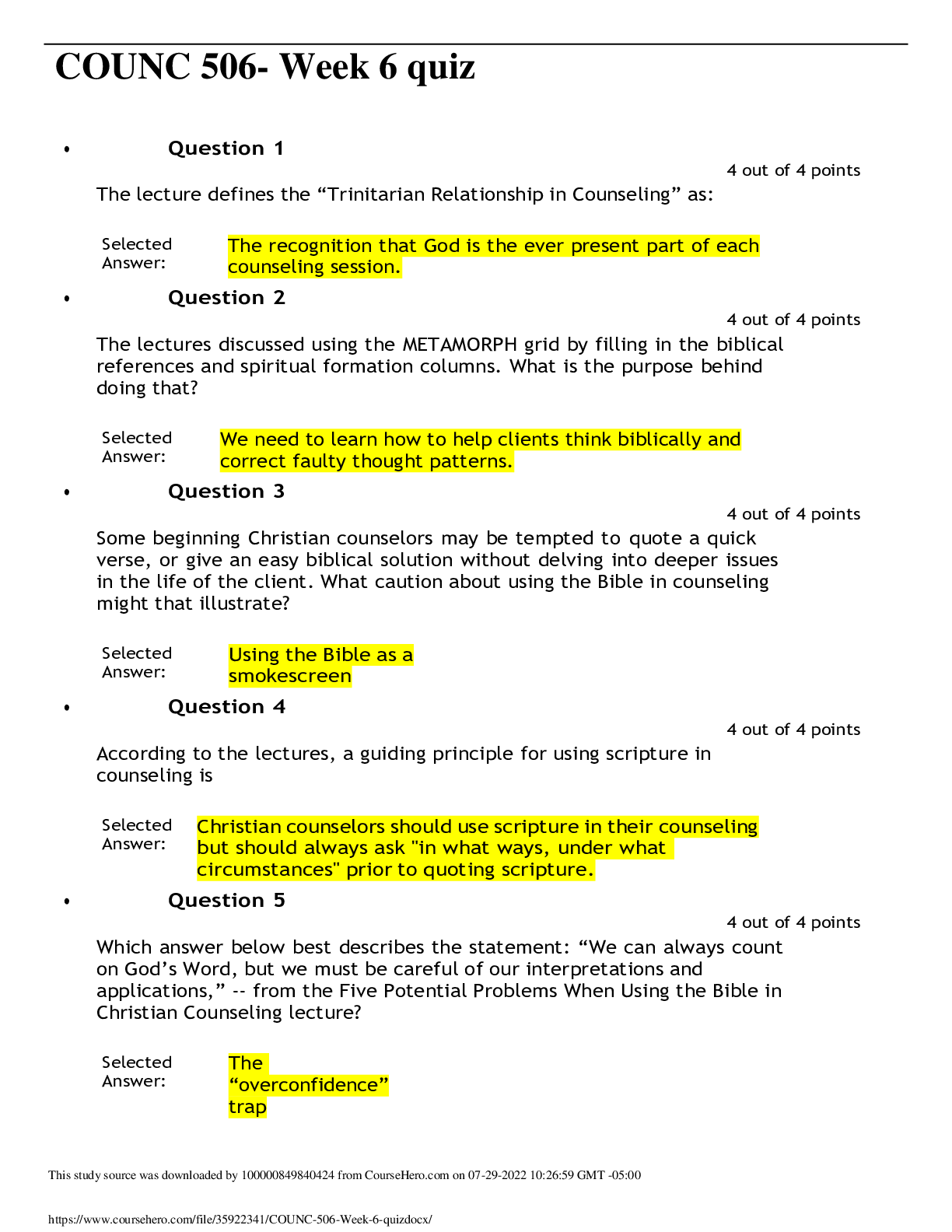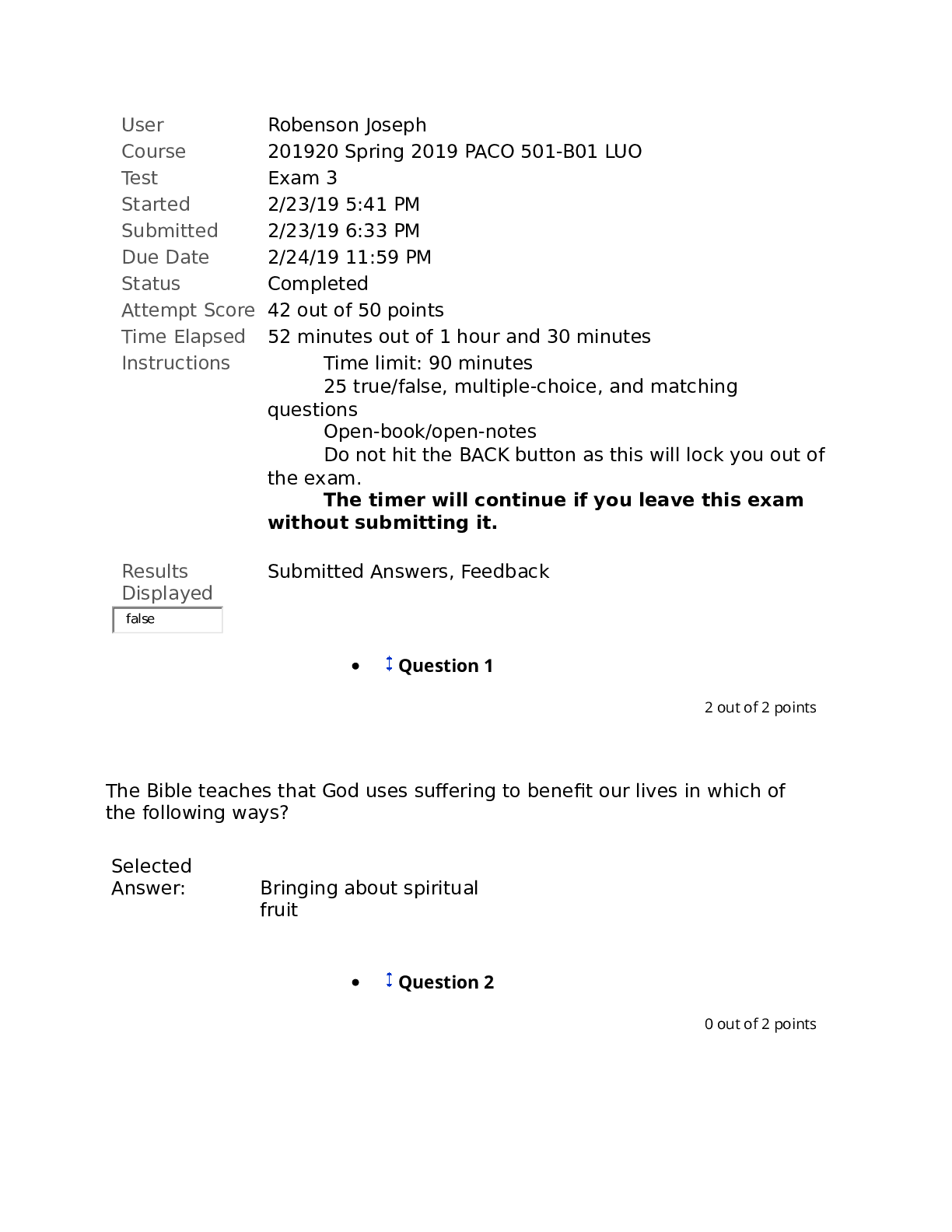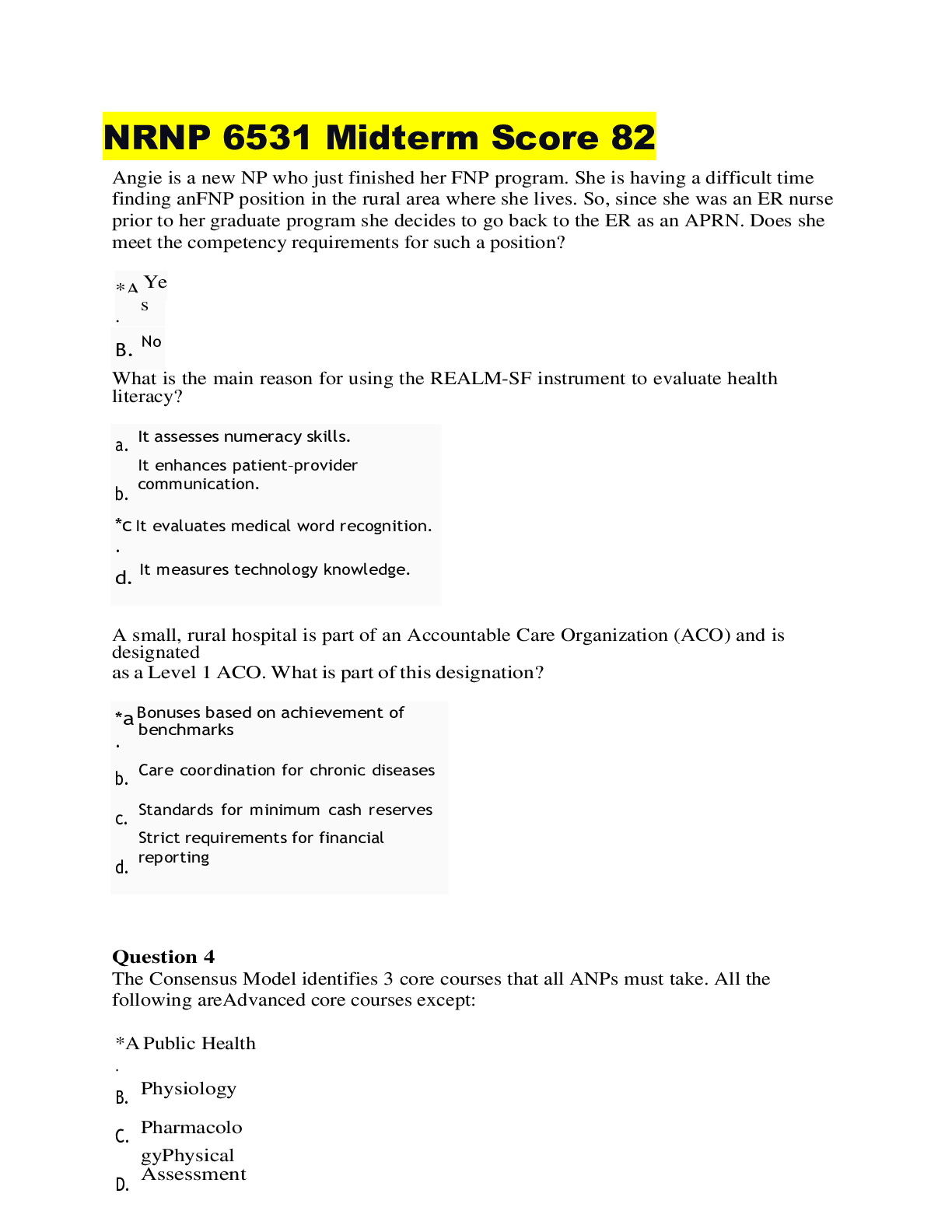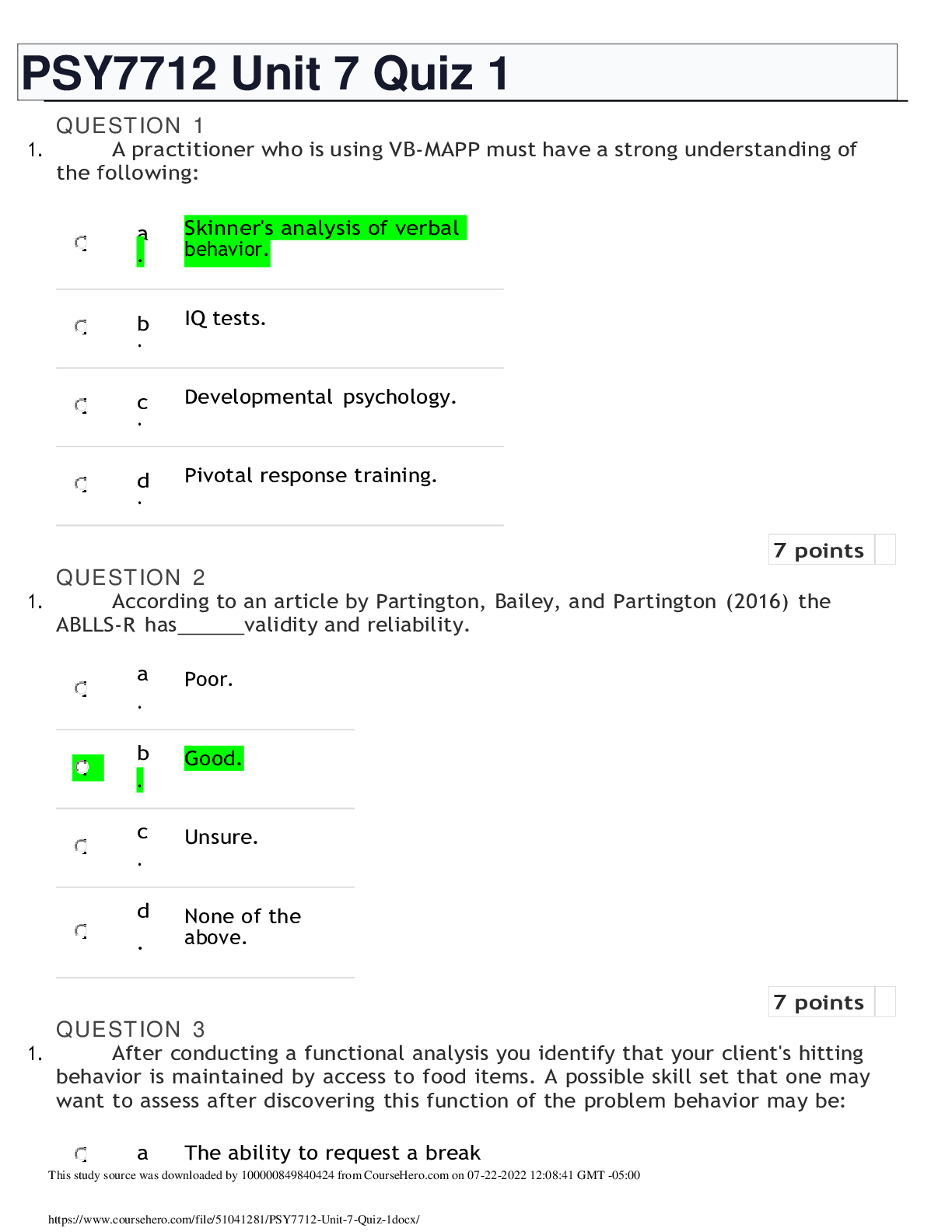Physiology > EXAM > HSCO 506 Exam 3 (version i 2023) Liberty University | Complete Solution, Attempt Score: 100 Out of 1 (All)
HSCO 506 Exam 3 (version i 2023) Liberty University | Complete Solution, Attempt Score: 100 Out of 100.
Document Content and Description Below
HSCO 506 Exam 3 100 out of 100 points • Question 1 4 out of 4 points Which answer below best describes the statement: “relying excessively on the Bible when other strategies mig... ht be more helpful to the client at that moment,” from the Potential Problems when using the Bible? • Question 2 4 out of 4 points Which answer below best describes the statement: “we can always count on God’s Word, but we must be careful our interpretations and applications,” from the Five Potential Problems when using the Bible in Christian counseling? • Question 3 4 out of 4 points The lecture talked about “depreciative desires” as a hindrance to reading Scripture for spiritual formation. What would be an example of that hindrance in the life of a client? • Question 4 4 out of 4 points Healing prayer can best be described as: • Question 5 4 out of 4 points The lecture defines the “Trinitarian Relationship in Counseling” as: • Question 6 4 out of 4 points If we want our clients to “set the stage” for formative reading of Scripture, what should we encourage them to do? • Question 7 4 out of 4 points In the context of the discussion on inside/out, outside/in change, the lecture used the term “condemnation engineering” as an example of a mechanism of outside-in change. What is an example of that mechanism? • Question 8 4 out of 4 points The lecture discussed the value of, and some principles for using meditation in Christian counseling. • Question 9 4 out of 4 points As a Christian counselor, I can use the Bible in an anthropological way. What would be an example of that in counseling? • Question 10 4 out of 4 points Although the lectures emphasized the importance of inside-out change, the lectures also explained the value of outside-in change. What is the function of dislocating experiences in the context of inside out change • Question 11 4 out of 4 points The lectures talk about the “level of risk” that different forms of prayer during counseling take. What is true from that discussion? • Question 12 4 out of 4 points According to the lectures, a guiding principle for using Scripture in counseling is • Question 13 4 out of 4 points The lectures talked about specific strategies for using the Bible in counseling. Which of the following would NOT be endorsed based on the lecture discussion • Question 14 4 out of 4 points Some beginning Christian counselors may be tempted to quote a quick verse, or give an easy biblical solution without delving into deeper issues in the life of the client. What caution about using the Bible in counseling might that illustrate? • Question 15 4 out of 4 points The lectures talked about several ways that Scripture could be used in counseling. Which of the following are legitimate ways to use Scripture with our clients? • Question 16 4 out of 4 points In our Christian counseling, if we want to help our client read the Bible for spiritual formation, what is true? • Question 17 4 out of 4 points What are some appropriate ways to use Scripture in counseling? • Question 18 4 out of 4 points The lectures explain that comments by the lecturer about Christian counseling are in the “soul care” tradition, and as such, spiritual formation is emphasized. Which answer below would NOT be true of Formative Reading of the Bible, as discussed in the lecture? • Question 19 4 out of 4 points The lectures discussed using the METAMORPH grid by filling in the biblical references and spiritual formation columns. What is the purpose behind doing that? • Question 20 3 out of 3 points Similar to our consideration of using Scripture in Christian counseling, since prayer is a godly endeavor, we should always open up our counseling sessions with a spoken prayer. • Question 21 3 out of 3 points Since the Bible promises that God’s word “will not come back void” any use of Scripture in counseling will be beneficial to the client. • Question 22 3 out of 3 points Christian meditation, in the context of spiritual counseling may be incompatible with understanding what is going on. • Question 23 3 out of 3 points A basic principle of prayer is that when we get closer to God, we also get closer to people as well. • Question 24 3 out of 3 points According to the lecture, helping a client change his/her behavior is never beneficial in producing true inner change. • Question 25 3 out of 3 points With regard to prayer and Christian counseling, the lecture refocused the question away from whether prayer should be a part of counseling, to a focus on what types of prayer minister best to our clients. • Question 26 3 out of 3 points Prayer helps us to get beyond the illusion that we are self-sufficient to move us to the reality that we are dependent on God. • Question 27 3 out of 3 points In the lecture discussion of prayer in Christian counseling, the definition of prayer focused more on connecting with God, rather than learning how to pray to get our petitions answered. [Show More]
Last updated: 1 year ago
Preview 1 out of 6 pages
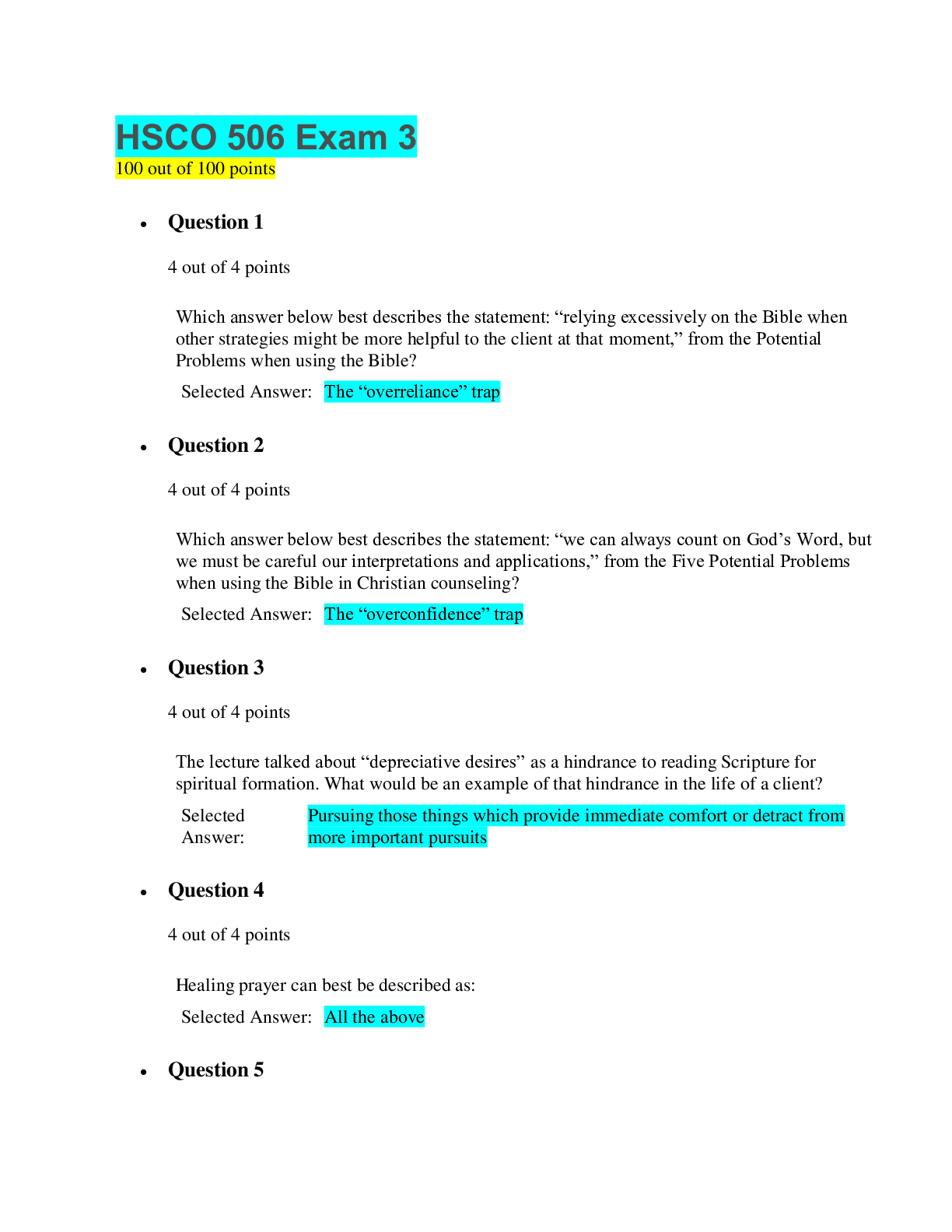
Reviews( 0 )
Document information
Connected school, study & course
About the document
Uploaded On
Dec 10, 2019
Number of pages
6
Written in
Additional information
This document has been written for:
Uploaded
Dec 10, 2019
Downloads
0
Views
277

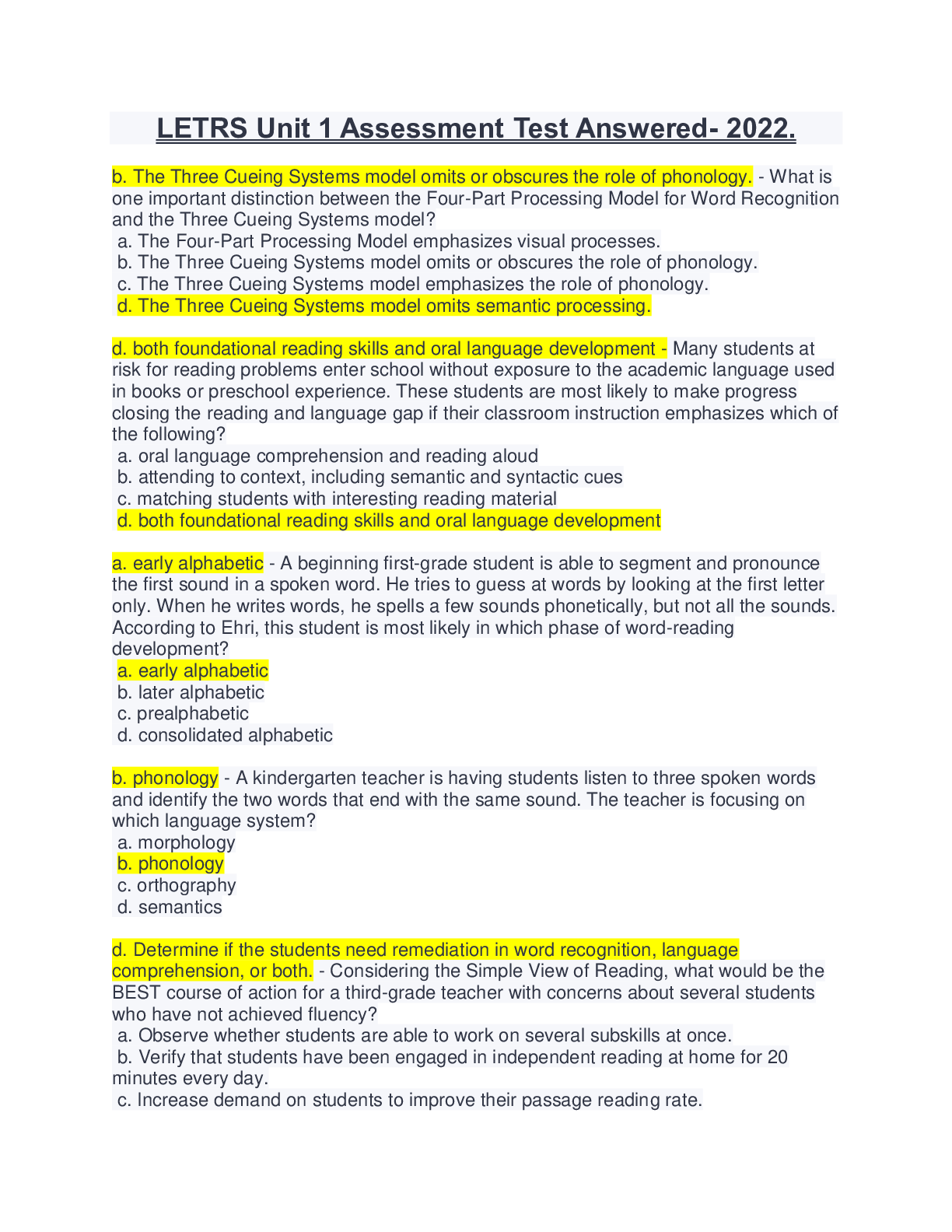
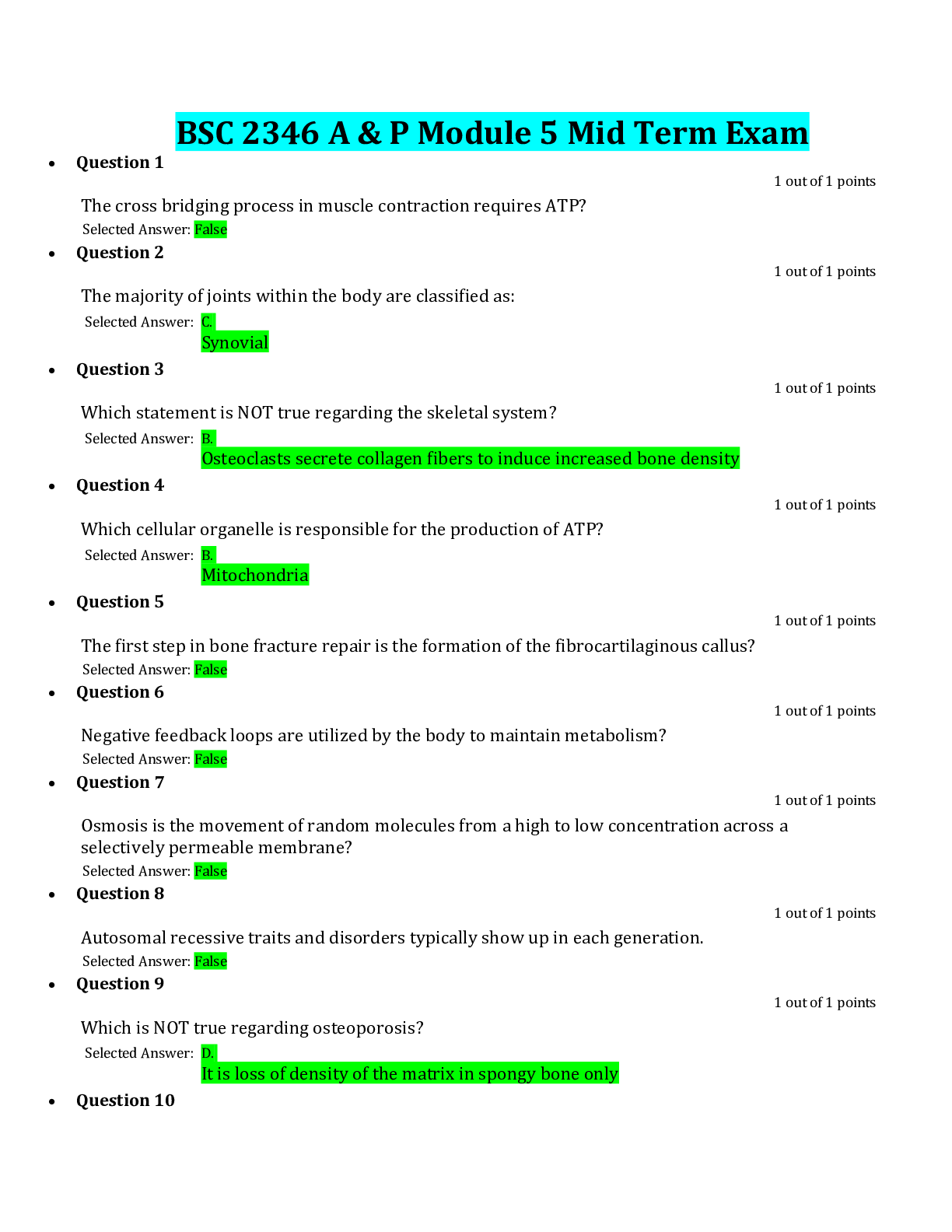
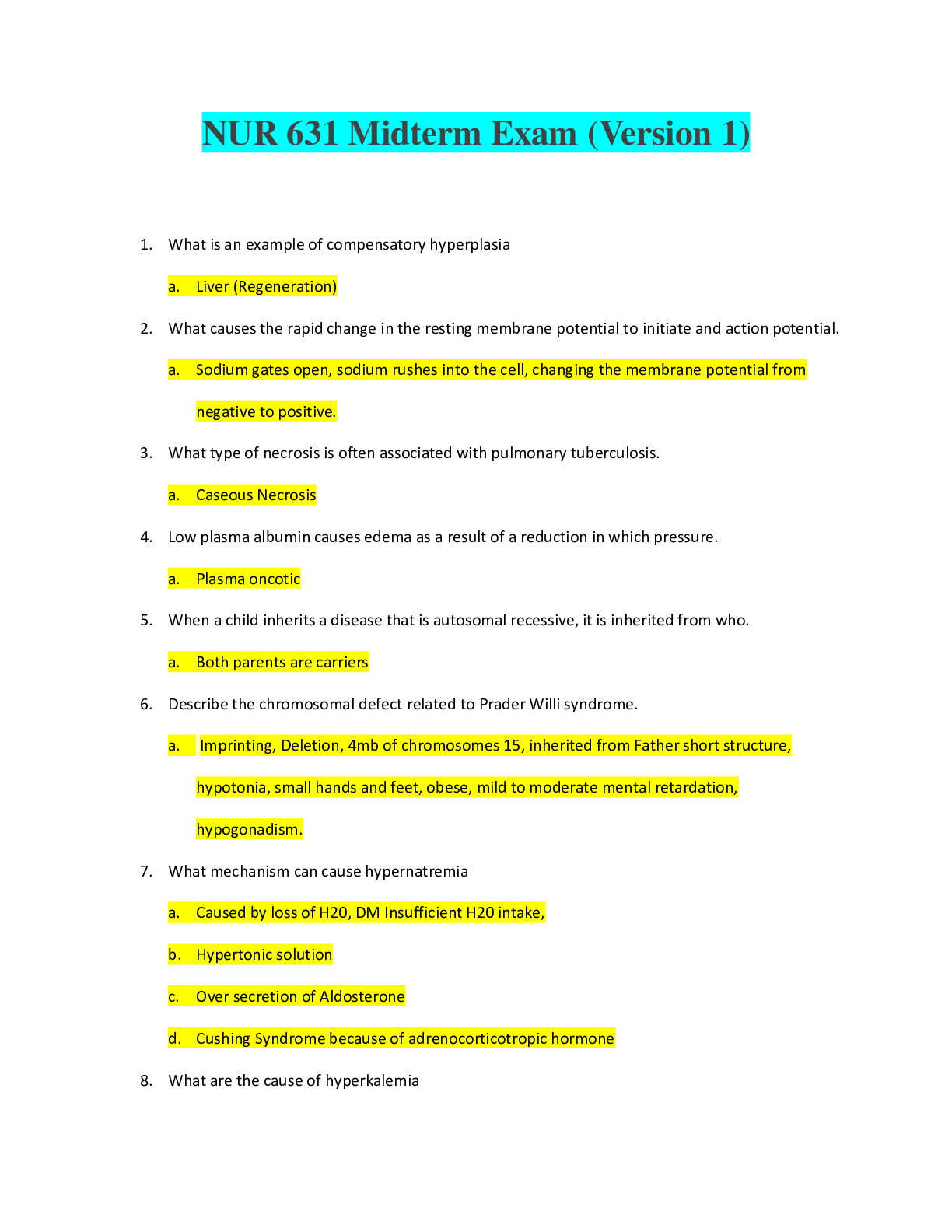
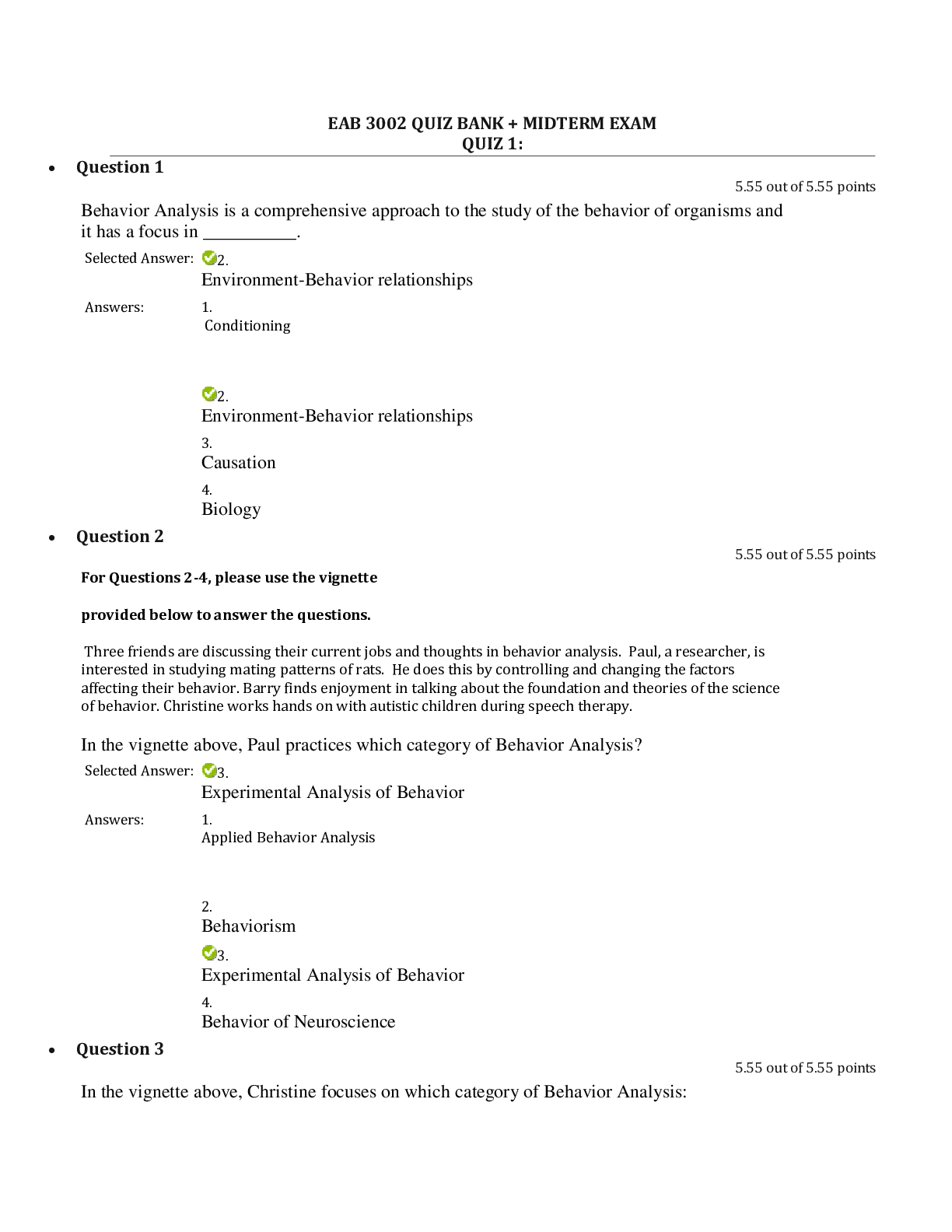

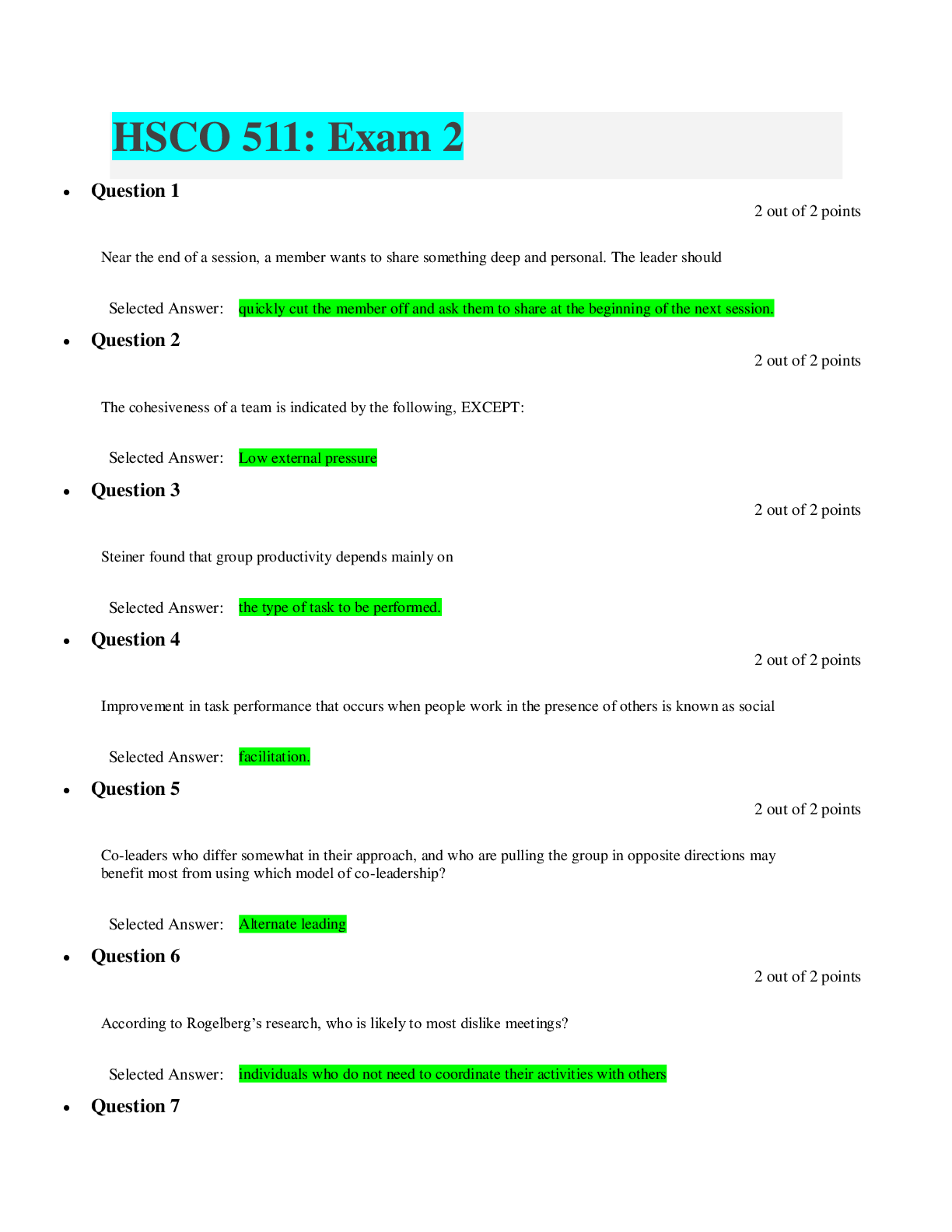
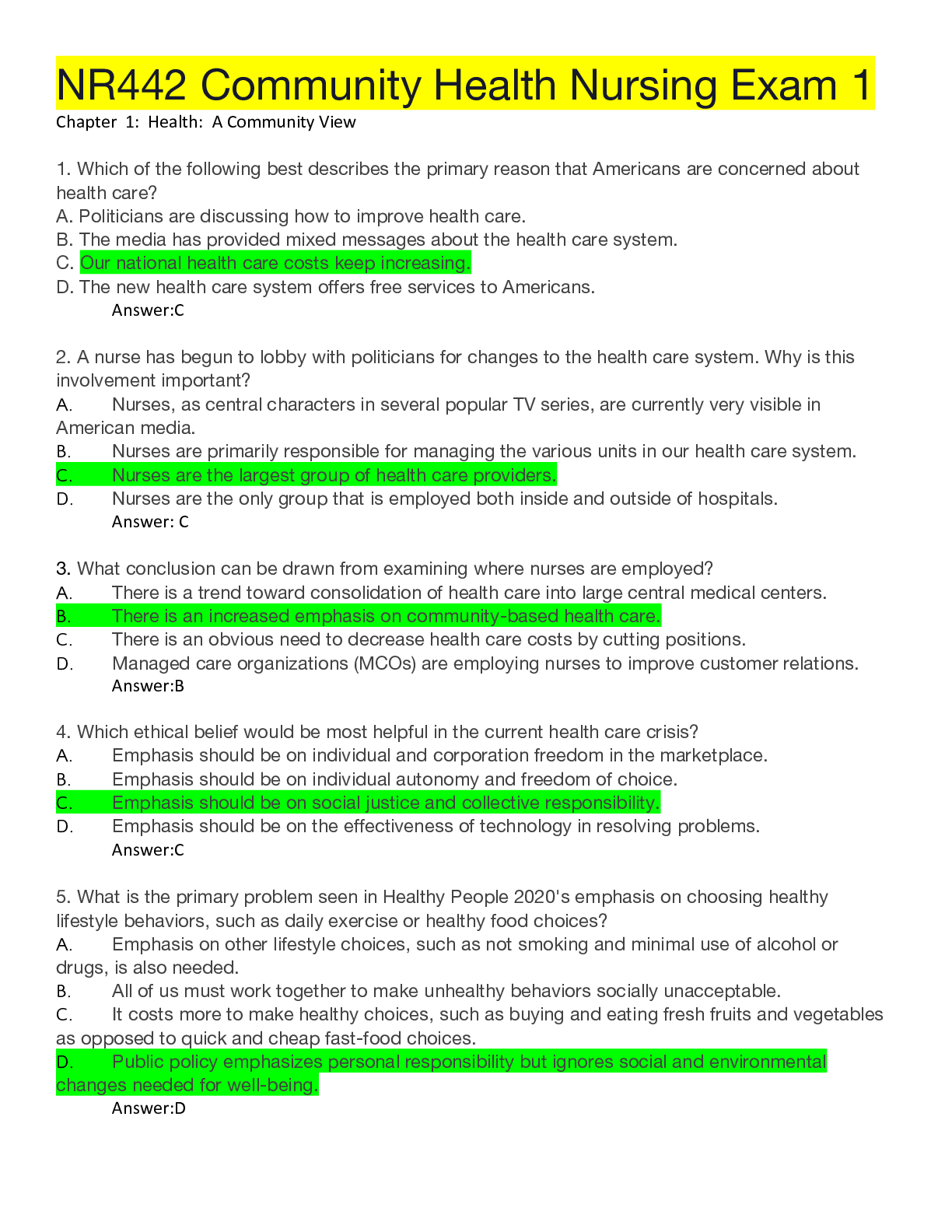
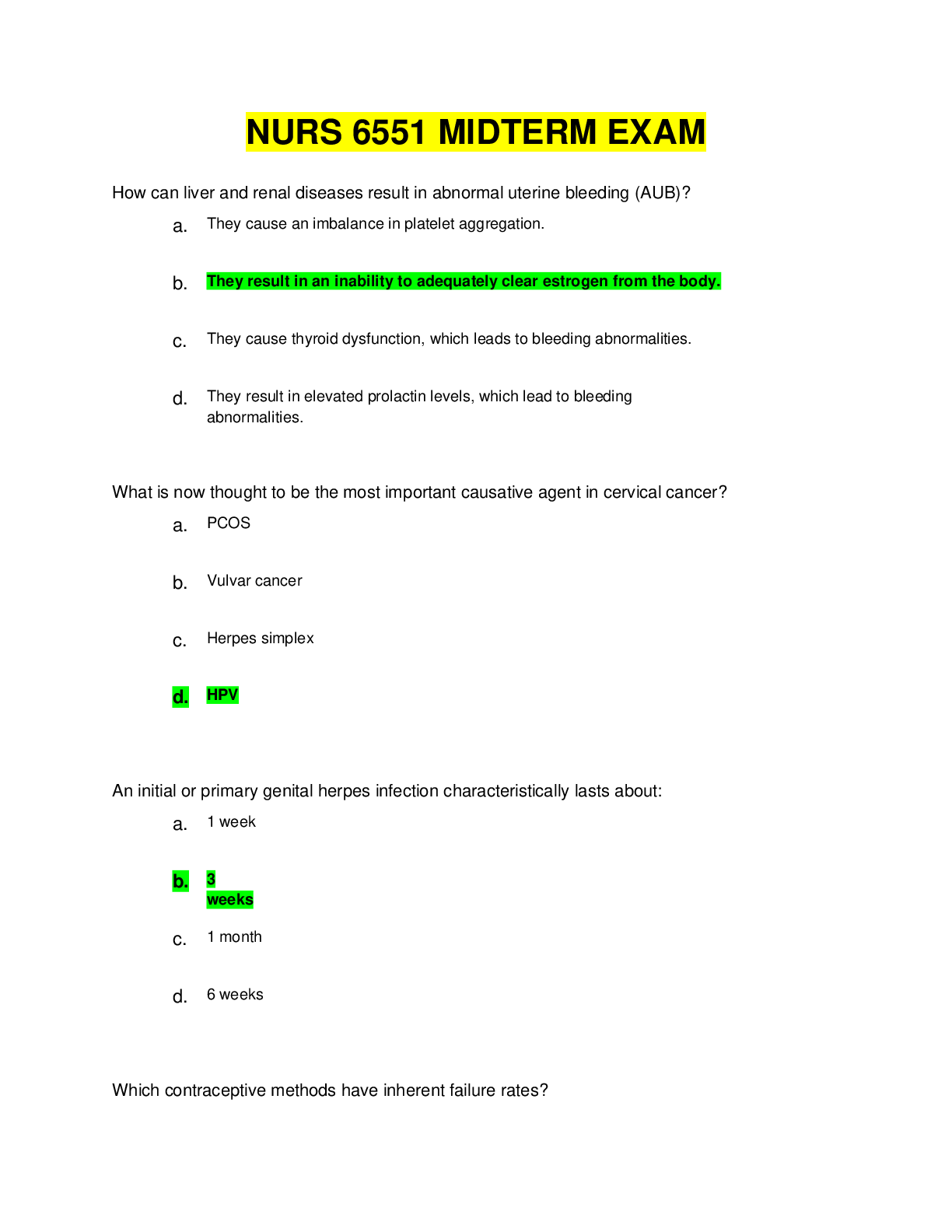
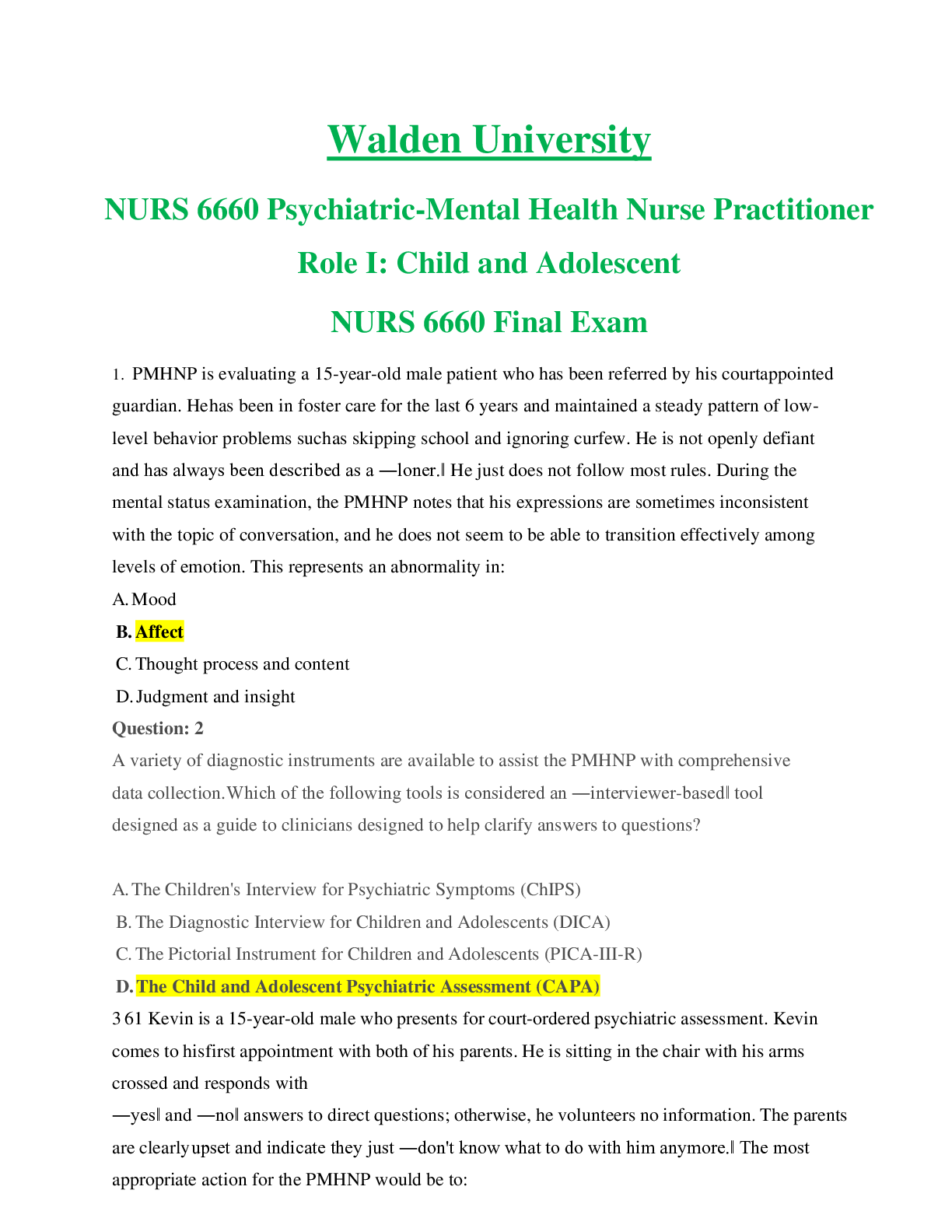
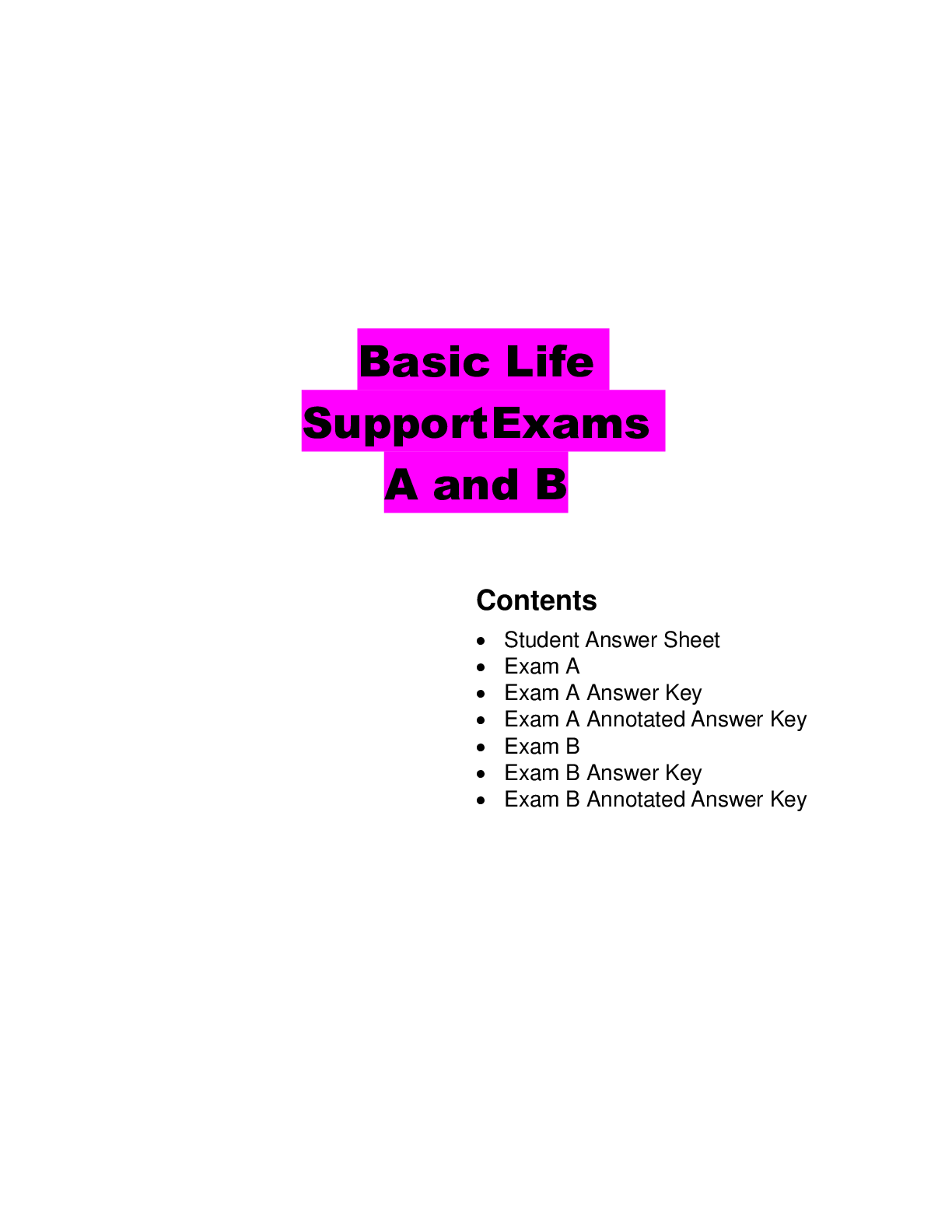

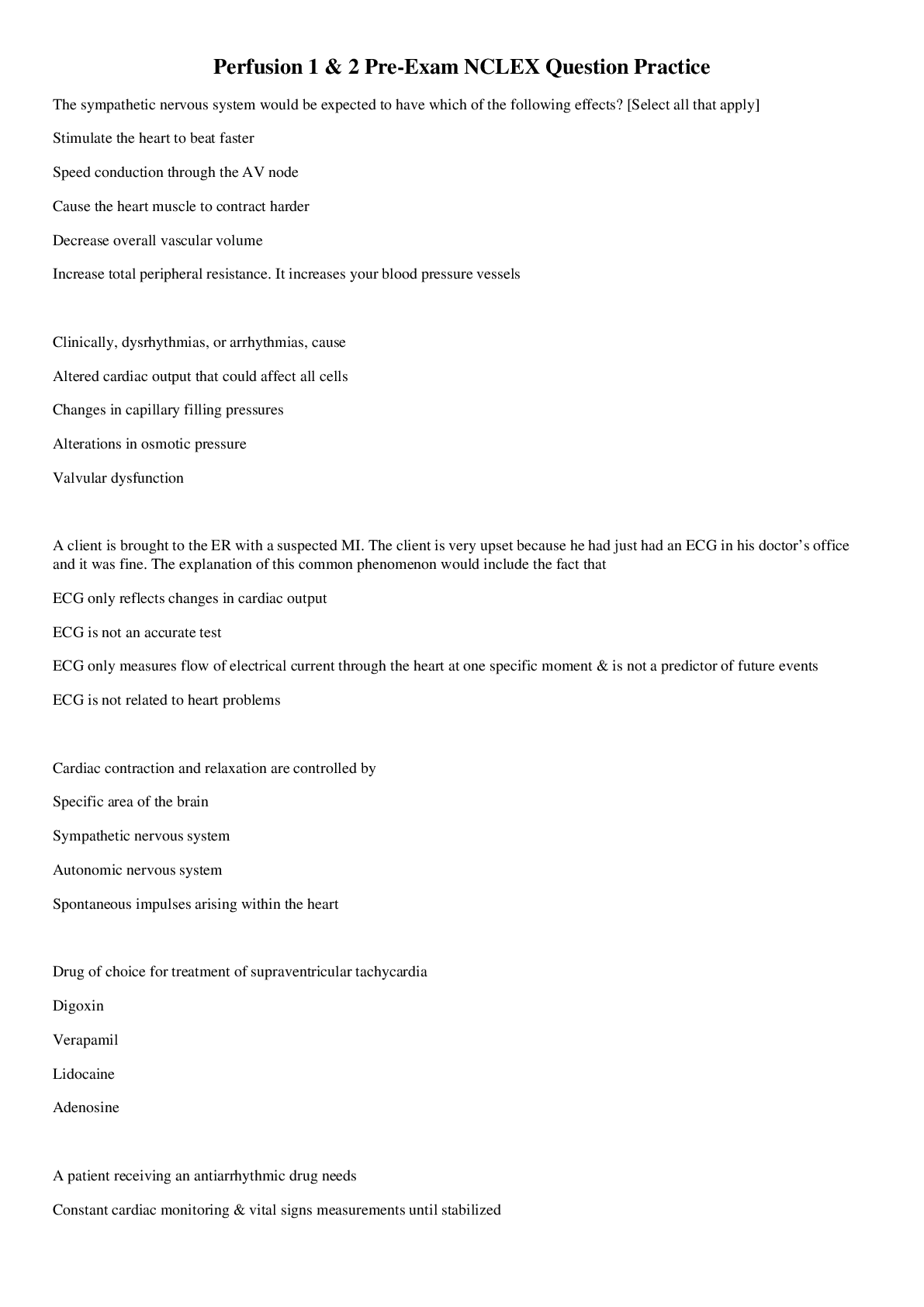
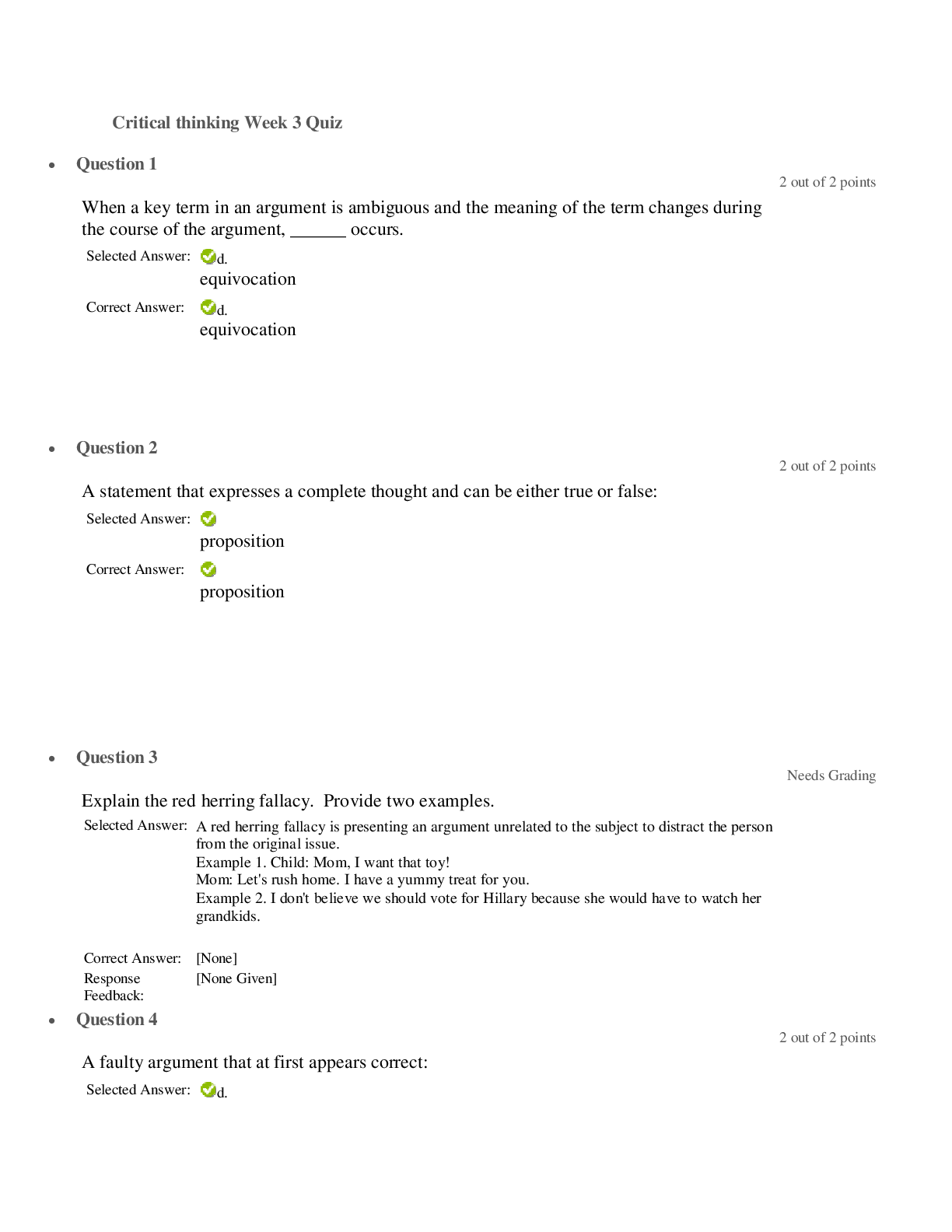
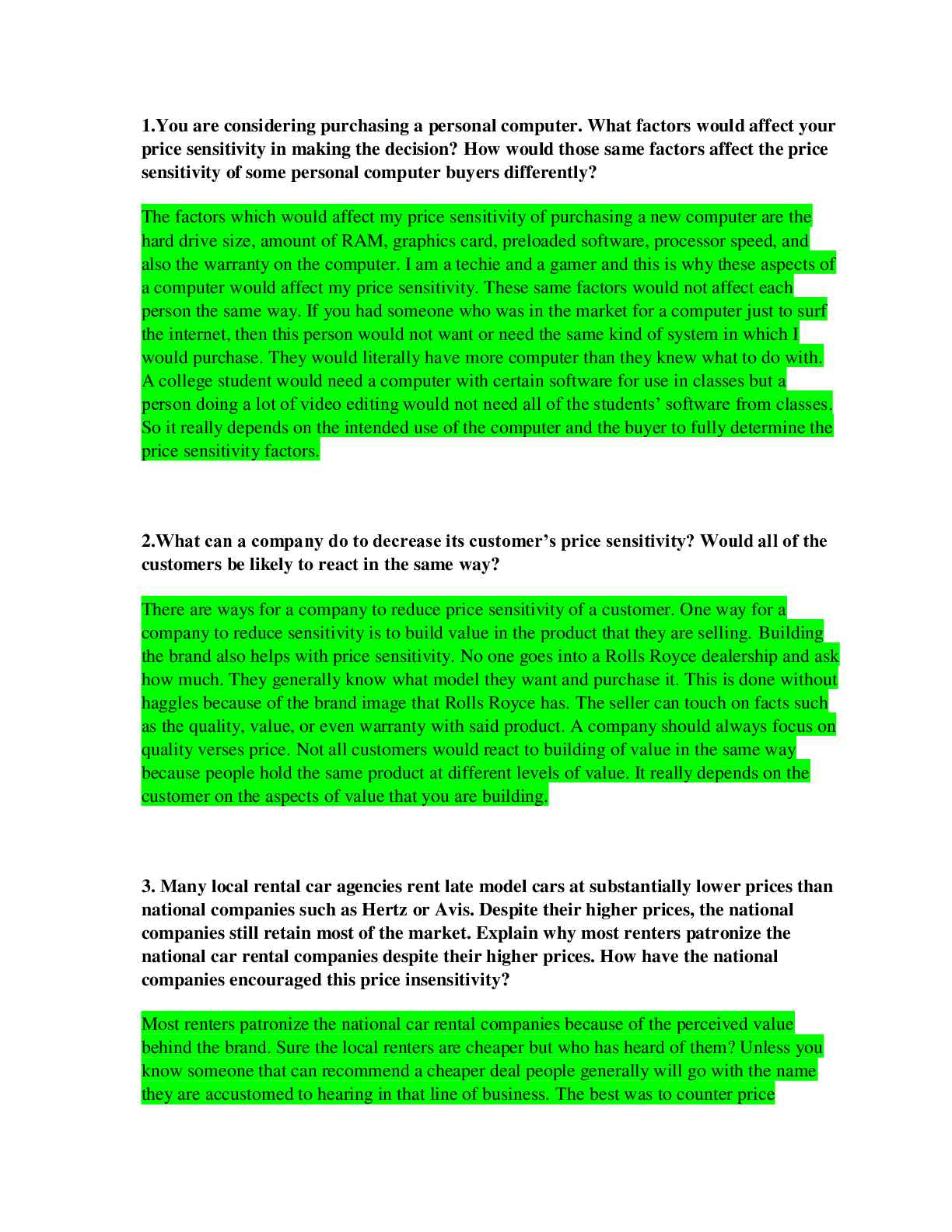

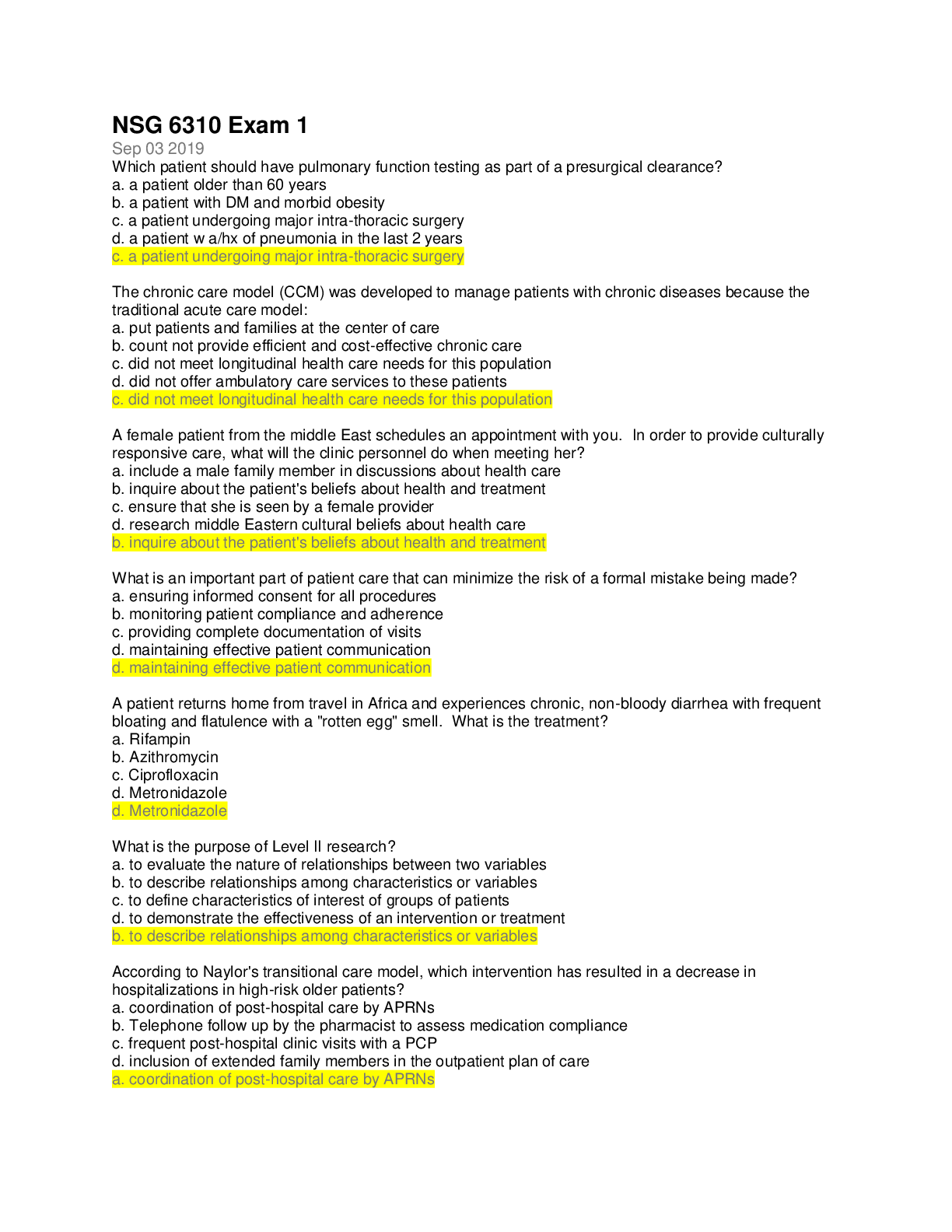

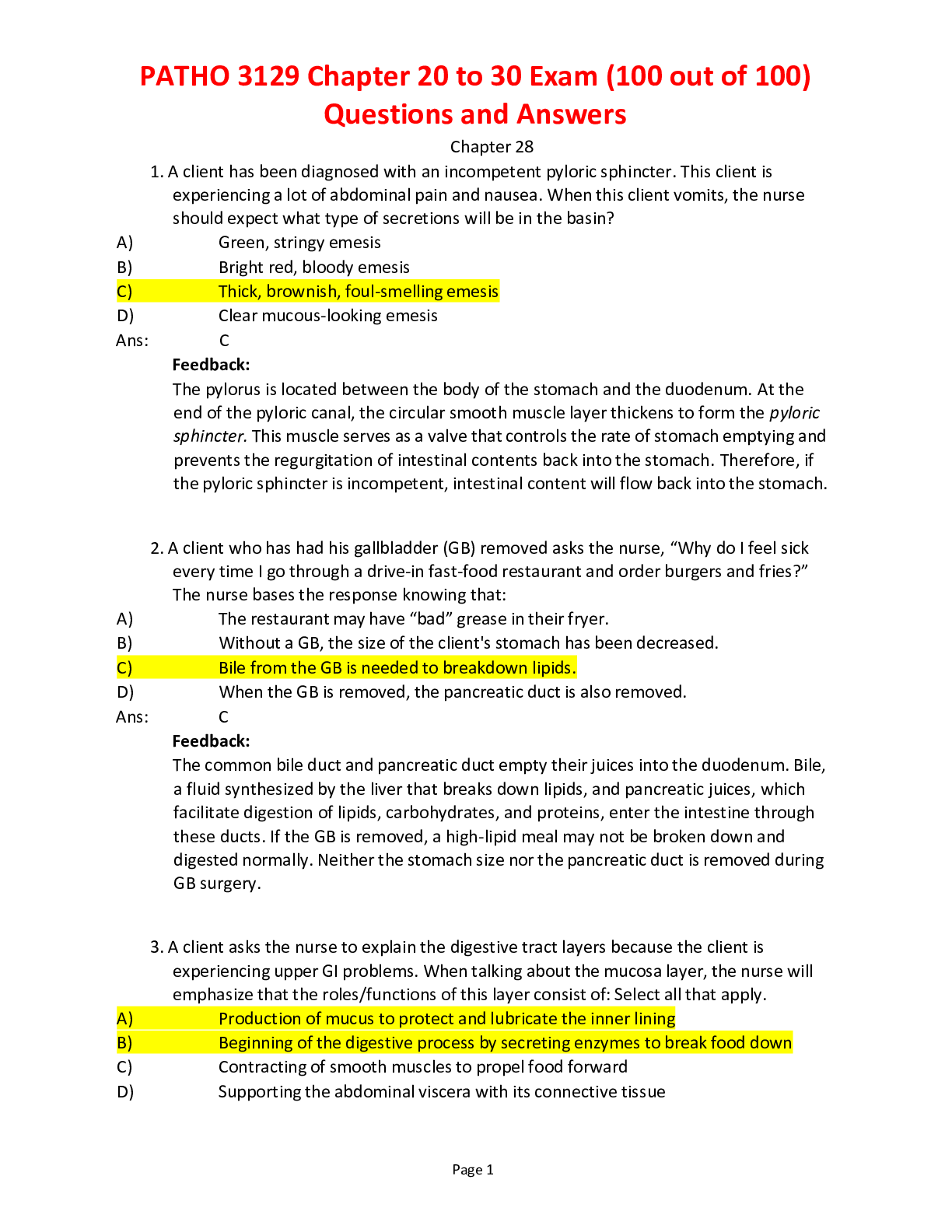
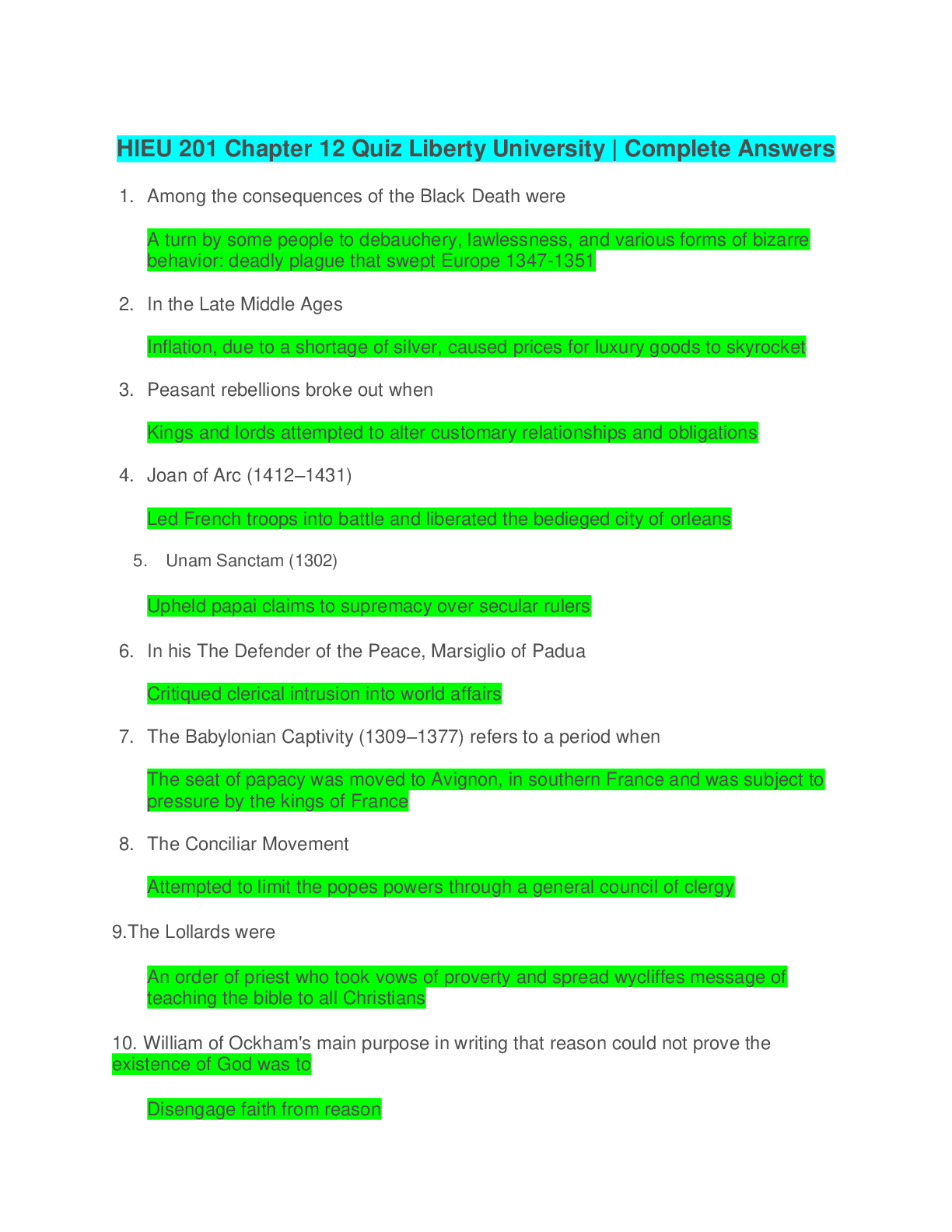
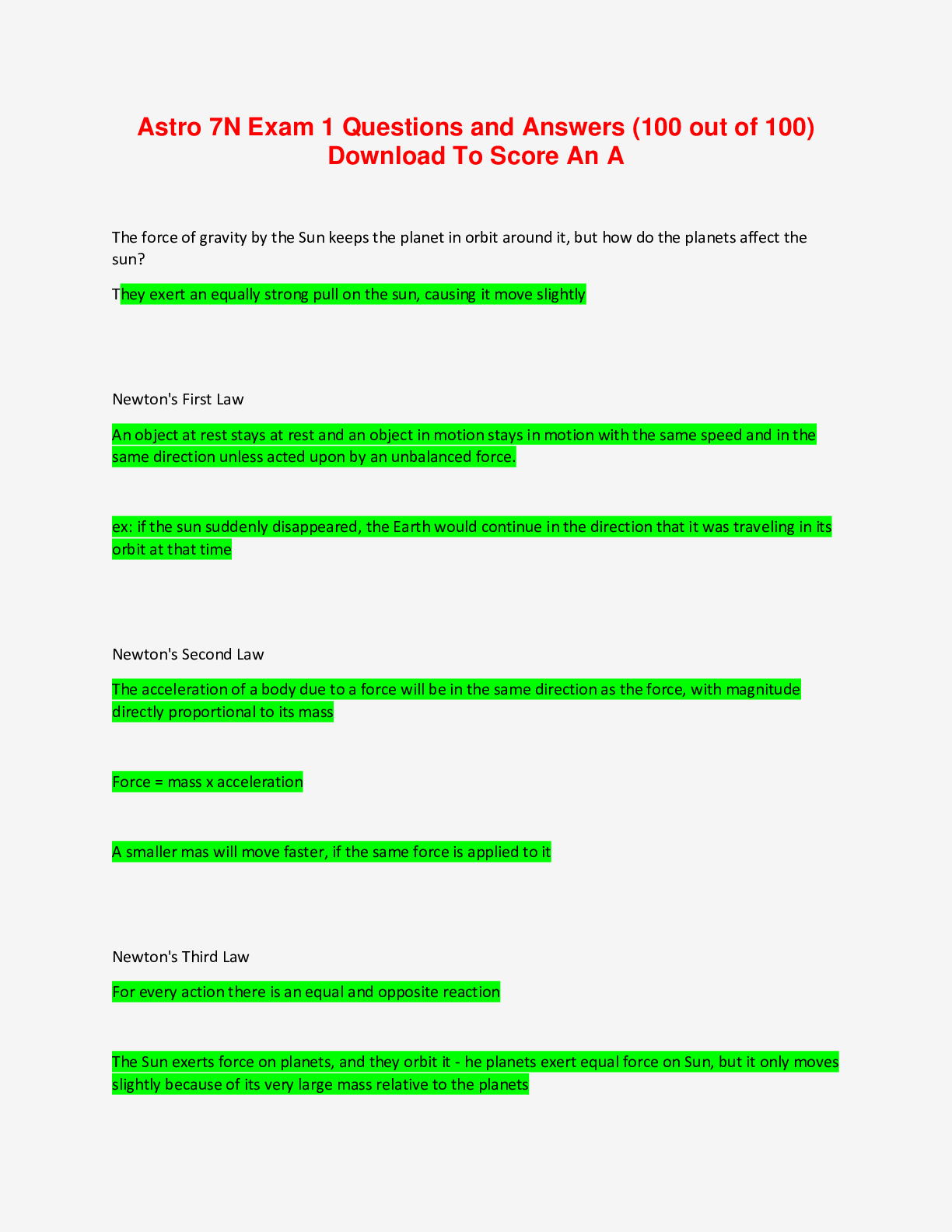
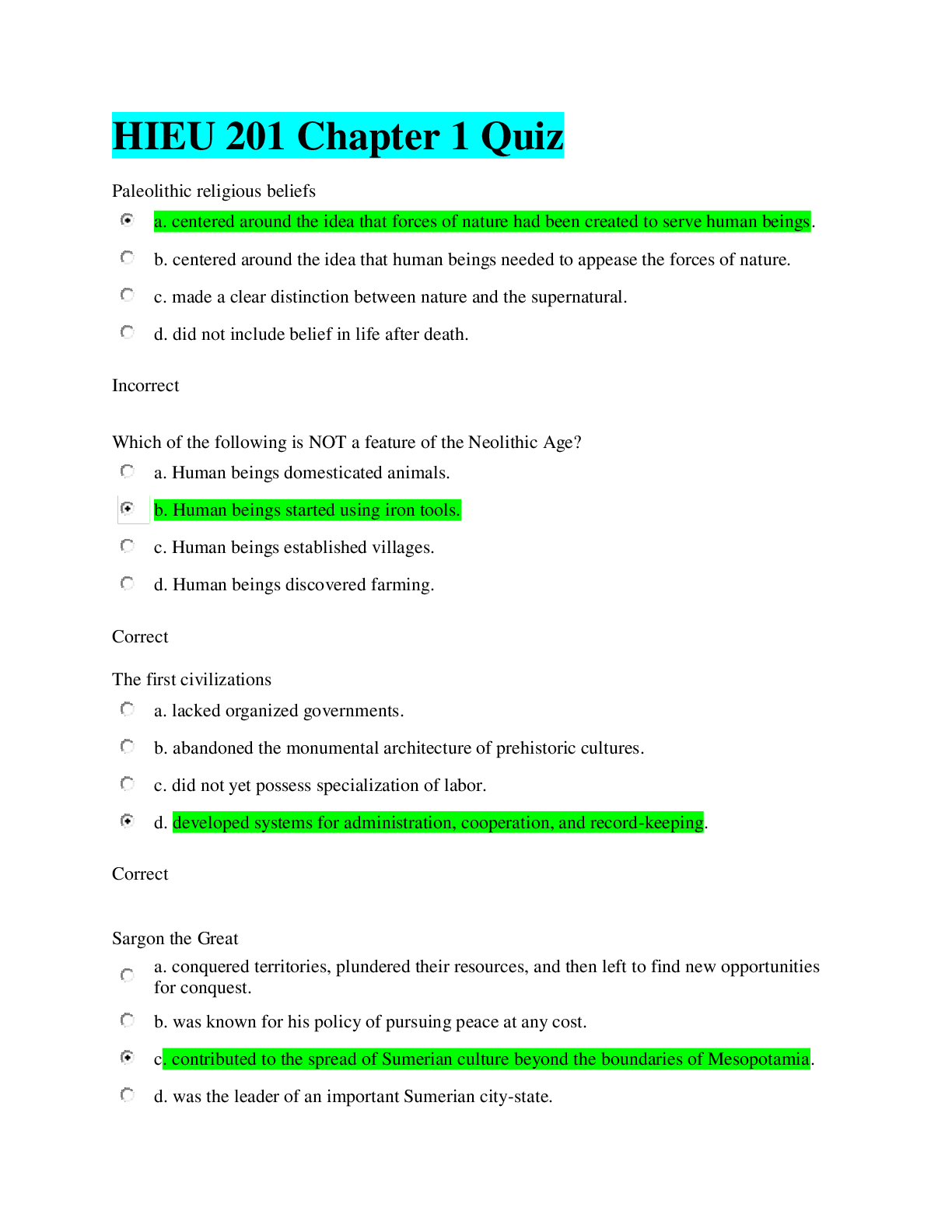

 Rasmussen.png)
